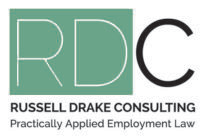It is a credit to the Government that they have made the Wage Subsidy Scheme available for the majority of businesses within New Zealand, however with any Government Policy that is brought into place in a hurry, the devil is often in the detail. In this case widespread confusion has existed regarding a number of provisions regarding the scheme – with these appearing to have changed over the last week. We have attempted through our network of advisors, to clarify late last week and provide you with some of the detail.
As of 4.00pm Friday 27th March 2020, the clarification from the Government is:
(1) The Self-Isolation Leave Payment is folded into the Wage Subsidy scheme to prevent double dipping – employers whose business remains open as an essential service during this time, but who have employees who are unable to work due to being over 70 years old, have underlying health conditions or other valid reasons to have to self-isolate should continue to make application for payment for these named employees.
(2) Businesses accessing the wage subsidy payment must continue to use their “best endeavours” to pay employees a minimum of 80% of their ordinary wages or salary. However, if you are unable to pay this amount you must pay not less than the amount of the subsidy received.
(3) However, where the employee’s ordinary wages are less than the value of the subsidy you should pay them their usual wage amount. There appears to be no requirement to repay the balance of this subsidy with the only requirement being to use this payment for the wages of the named employees (we are seeking further clarification on the ability to pass the balance onto the remaining named employees)
(4) The Subsidy Application process requires employers to provide confirmation that the employees named in the application have consented to have their personal details passed onto MSD, however the Privacy Commissioner has now publicly declared that the subsidy can be obtained without obtaining prior employees authorisation.
(5) Employers accessing the Wage Subsidy must commit to continuing to employ the named employees for at least the length of the scheme (12 weeks). This means that, if you are paying at least the minimum subsidy amount to an employee ($585.80 or $350 for part timers or the employees’ part-time wage if less than $350), the termination of their employment cannot occur before the end of the 12 week period.
(6) The Subsidy is to be paid to the employee through the payroll system and is therefore subject to PAYE, Student Loan and KiwiSaver deductions – if family support and or court fines (required deductions) are to be deducted the Wage Protection Act 1983 provision to ensure that the employee still receives not less than 60% of their weekly earnings still remains. If the amount of required deductions takes this below the 60% threshold you will need to contact the relevant Government Department to discuss a variation to the deduction requirements.
(7) Employers cannot “unlawfully” compel or require an employee to use their leave entitlements during the period in which they are accessing the Wage Subsidy Scheme. This does not however
prevent an employer from approving an employee’s application to use annual leave. The provision within the Holidays Act 2003 where an employer may direct an employee to take annual leave through the providing of not less than two (2) weeks’ notice remains in place as this is a ‘lawful’ request.
(8) Employers are also now required to declare that they will not make any changes to employment agreements, including hours of work, rates of pay or leave entitlements, without the written consent of the relevant employee. Employers who have already reached oral consent to make temporary changes to employment arrangements will need to seek specific guidance on how to respond to this new development.
(9) The Wage Subsidy Scheme does not diminish the employer’s continuing obligations under the relevant employment agreements or employment legislation, including The Employment Relations Act 2000. The Holidays Act 2003 and The Wages Protection Act 1983.
(10) The Minimum Wage increase to $18.90 per hour effective as of 1 April 2020 will still occur.
We trust these latest clarifications will assist you in your COVID-19 staff planning practices. If you have already commenced a restructure consultation process, believe that redundancies will be required at the conclusion of this period or need to address the new obligations under Point (8) above – regarding written agreement to changes.
Please feel free to contact us directly to ensure that you are meeting all required obligations our office remains open throughout this period and you can contact us as usual.

